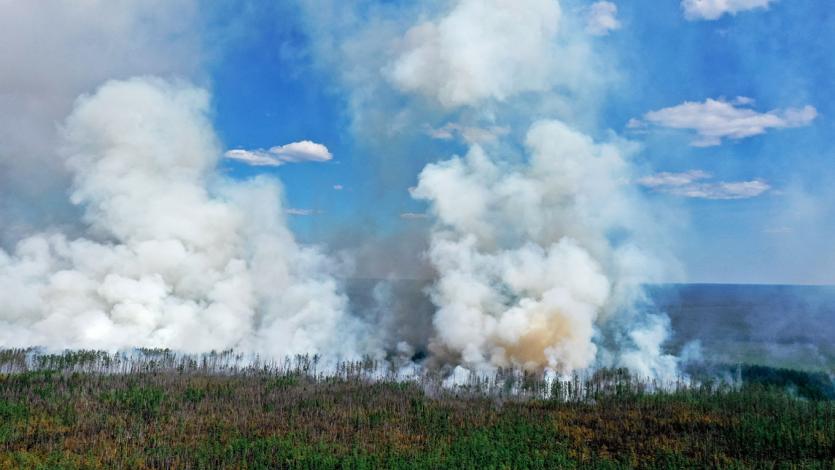The fires have been especially catastrophic in the Siberian republic of Sakha. Photo: TASS
The World Daily | News Desk AUGUST 22nd 2021
The fires in Yakutia have been going on since the beginning of summer. In mid-August, the fire covered about 1.5 million hectares of forest. According to Greenpeace activist Grigory Kuksin, they have an adverse effect on weather changes and accelerate global climate change.
Yakutia, located in Eastern Siberia, is the largest republic of the Russian Federation. It covers more than three million square kilometers, or about one fifth of the territory of all of Russia. Its area is the size of two-thirds of Western Europe. The taiga covers most of the region.
"I have been extinguishing fires for many years, for over twenty years. I have been observing how these processes are changing in Russia and what methods have been tried," said Greenpeace activist Grigory Kuksin, who manages the fire service in the Russian branch of the organization. He explained that the causes of the fires in Russia are still the same. What has changed is the climate. It was its changes that made this year’s fires of an exceptional scale. According to the activist, they are the largest in the history of observation.
In Russia, field fires usually intensify twice a year: in spring and summer. As the activist explained, in spring "practically all of them are the result of human activities, mainly burning grass on pastures." In summer, there are also fires caused by natural causes: lightning strikes and droughts. There are about 10 percent of them. Another reason is the human factor - careless handling of fire, including fires set up in the forest.
“Summer fires in Yakutia arise after logging trees: branches and waste are set on fire, which is illegal, but it is done, including during legal logging,” said Kuksin.
The weather is also responsible for the high fire risk. Summer in Yakutia is very short, but at the same time very hot and dry. This year the heat and drought turned out to be extreme.
As of mid-August this year, there were still more than 110 fires in Yakutia, and the fire spread to about 1.5 million hectares of forest. The US agency NASA warned that for the first time in history, smoke from the fires reached the North Pole.
"Under the conditions of climate change, fires that have arisen under normal circumstances become much more dangerous," noted Kuksin.
Yakutia, like all regions of Russia, receives money from the federal budget to fight fires. The amount of funding depends, among other things, on the population density, and this huge region is sparsely populated. As a result, Yakutia gets only six rubles per hectare to fight fires. "This leads to the fact that most of Yakutia is not protected against fires," explained Kuksin.






